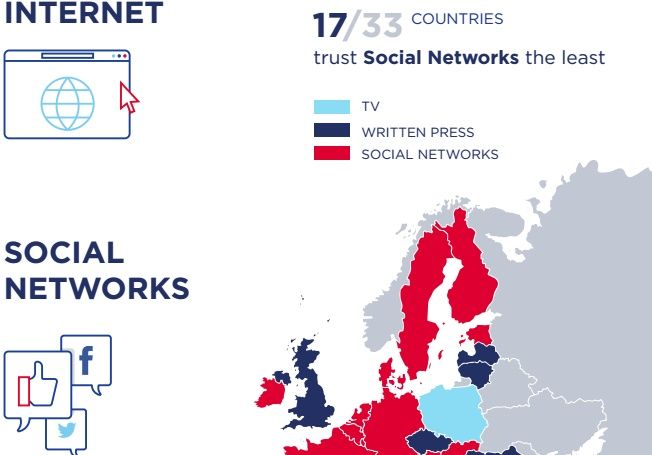Just search any top 10 most untrustworthy job rankings, and journalism usually comes in just ahead (and sometime behind) politicians, estate agents, bankers and lawyers. And certainly, their feeble reputation hasn’t been done any favours by the recent fake news epidemic.
But in the Nordic countries, people still hold the media in high regard – well at least higher than other European nations.
According to the most recent Trust in Media 2017 survey conducted by the European Broadcasting Union (EBU), trust in traditional media in the Nordic countries is the highest in Europe.
The survey found that Denmark, Sweden and Finland are all in the top five in Europe when it comes to placing trust in TV, radio and print media. Danes had the third most trust in radio (60 percent), and the fourth most in TV (46 percent).
“It is reassuring that the public’s level of trust in broadcast media is so strong in the Nordic countries and is actually increasing across Europe,” said Roberto Suarez, the head of EBU’s media intelligence service.
“In this post-truth world, it is encouraging to see the public can differentiate between competing sources of news and have chosen to put their trust in more traditional media.”
READ MORE: Danish IT firm battling fake news and lies using data
Dubious social media
Conversely, the survey also found that the Nordic level of trust in social media is among the lowest in Europe.
Denmark saw the biggest drop in trust in the internet over the past five years: from 54 to 38 percent. Overall, 17 of the 33 surveyed European nations trusted social networks the least.
“As public service broadcasters, it is the job of our members to cherish and maintain that level of trust and continue to provide impartial, independent reporting to counter the spread of fake news and the limitation of filter bubbles on social media,” said Suarez.















